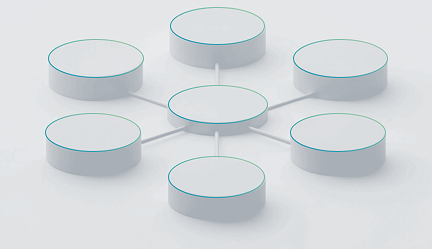Introduction
The construction industry, long perceived as ‘set in stone’ (pun intended!), is undergoing an evolution fueled by Artificial Intelligence (AI). From streamlining operations to enhancing safety and reducing costs, AI is becoming a cornerstone of innovation in this traditionally labor-intensive sector. In this blog, we will explore how AI is reshaping construction, the key applications, the challenges, and the exciting opportunities ahead. [1]
Soaring Market Potential of AI in Construction
The global AI in construction market has seen remarkable growth, with recent reports estimating its value at $1.21 billion in 2024 and projecting it to reach around $17.01 billion by 2033, reflecting a robust CAGR of 34.12%. This growth is driven by AI’s potential to drastically reduce accident risks, streamline project management, and enhance technological adoption. The post-pandemic era has further emphasized the need for remote collaboration tools and digital innovations, catalyzing AI adoption across the sector [2]
In addition to revenue growth, AI is unlocking opportunities for smaller construction firms to access advanced tools previously limited to large-scale operations. With increasing investments in automation and analytics, AI is becoming an indispensable component of modern construction strategies.
Applications of AI in Construction: Anchored in Safety and Efficiency [3]
Predictive Analytics for Project Management
AI-driven predictive analytics tools help anticipate delays, manage risks, and optimize resource allocation. Platforms like Buildots’ Delay Forecast and Oracle’s AI-integrated project management tools are enabling real-time data integration and actional insights for how construction timelines are managed
Generative Design for Architecture
Generative AI, employed by companies like Obayashi Corporation, allows architects to create innovative designs rapidly. These tools integrate with Building Information Modeling (BIM) systems, offering unparalleled accuracy and efficiency. Generative AI not only enhances aesthetic possibilities but also ensures structural integrity and cost optimization.
Autonomous Machinery and Robotics
AI-powered robots, such as Nextera Robotics’ construction robots, automate repetitive and hazardous tasks. From high-resolution site imaging to autonomous material transportation, robotics are enhancing both safety and productivity. Examples include Dusty Robotics’ automated layout tools and Icon’s 3D printing robots that construct housing structures at reduced costs.
Safety Enhancement
AI tools like Oracle’s Newmetrix analyze safety data to predict and mitigate risks. Integrated with AI-driven cameras, these tools actively prevent accidents by identifying safety violations in real-time. Predictive models powered by machine learning are being used to identify risk-prone areas and develop proactive mitigation strategies.
Process Optimization
AI aids in streamlining administrative tasks, procurement, and logistics. John Holland’s use of AI for internal communications and Gamuda Berhad’s AI-enhanced decision-making models exemplify how technology is reducing inefficiencies. AI-powered procurement systems are also cutting costs by optimizing material purchasing and reducing waste.
Innovations Meet Real-world Impact [4-6]
AI has catalyzed a wave of innovations which are already seeing tangible customer adoption and measurable impacts across various use cases. For instance, cities like Gainesville, Florida, have embraced tools like AutoReview.ai to automate compliance checks, slashing permit approval times by 80% while improving regulatory accuracy in urban planning. Similarly, City of Austin’s partnership with Archistar automates building plan evaluations, reducing permit processing times by 80%.
Nextera Robotics’ AI-powered robotic solutions are being adopted by mid-sized contractors to alleviate labor shortages, enabling a 60% increase in on-site task efficiency. Procore Technologies’ AI tools are widely implemented in industries with strict safety protocols, helping firms reduce workplace incidents by up to 30% while maintaining operational efficiency.
On the product management side, Trunk Tools’ scheduling agents are helping ensure optimized resource allocation and avoid costly delays. These examples highlight how the sector is actively adopting AI, showcasing its practical impact in solving real-world construction challenges.
Challenges and Risks abound in the Complex and Fragmented Construction Industry
While the potential of AI in construction is undeniable, several challenges impede its widespread adoption:
High Initial Investment Costs
The implementation of AI technologies demands significant capital investment, often deterring smaller firms. Return on investment may take time, leading to financial strain. Governments and private stakeholders need to collaborate to provide funding and subsidies to overcome this hurdle.
Workforce Skill Gaps
The rapid advancement of AI has outpaced the availability of skilled professionals to manage these systems. Upskilling initiatives are crucial to bridge this gap. Training programs focusing on AI literacy, data analytics, and digital tools will be key to empowering the workforce.
Data Privacy and Security
With large volumes of sensitive data being generated, robust cybersecurity measures are imperative. Breaches can compromise project integrity and company reputation. Companies must invest in advanced encryption and real-time monitoring systems to safeguard critical data.
Regulatory Compliance
Navigating diverse regulatory landscapes and ensuring compliance with AI-related laws can be challenging for global construction firms. Standardized guidelines and industry collaboration will be essential to address these issues effectively.
A Keen Outlook for AI-Driven Smart Construction
Impact
Sustainability and Eco-Friendly Practices
AI is driving eco-conscious construction through carbon-neutral designs and optimized material usage. Platforms like Vizcab are utilizing life-cycle assessments to reduce environmental impacts. AI also supports waste minimization by accurately predicting material needs and enabling recycling in construction workflows.
Urban Infrastructure and Smart Cities
Governments are investing in AI to create smart urban infrastructures. AI solutions enhance resource management, optimize traffic, and support sustainable urbanization projects. AI-powered systems like automated traffic management and smart utilities monitoring are already being piloted in several cities worldwide.
Workforce Transformation
AI is not just replacing hazardous and manual labor-intensive jobs; it’s creating new roles requiring advanced digital skills. Companies must focus on reskilling and workforce adaptation to thrive in this AI-driven environment. Collaborative partnerships with educational institutions will be crucial for developing the next generation of AI-savvy construction professionals.
Notable Strategic Investments
Key Investments
- Adaptive raised $26.4 million to develop AI-driven construction finance solutions.
- Buildots secured $15 million for AI-powered progress tracking tools.
- AI Clearing raised $14 million to enhance construction analytics with computer vision.
- Procore Technologies invested in acquiring Intelliwave Technologies to strengthen its resource management tools.
These investments reflect the increasing confidence in AI’s potential to revolutionize the construction landscape.
7. Conclusion
The integration of AI in construction is more than just a technological advancement; it’s a revolution reshaping how projects are conceived, managed, and executed. As the industry navigates challenges like workforce adaptation and regulatory compliance, the opportunities for innovation and efficiency are boundless. With AI at the helm, the construction sector is poised to build not just structures, but a smarter, sustainable future.
AI’s transformative impact will depend on industry-wide collaboration, continuous innovation, and a commitment to ethical practices. By leveraging AI strategically, construction firms can unlock unparalleled value, paving the way for a dynamic and resilient built environment.
Sources [1] Oryx Align - How AI is transforming the construction industry (link) [2] Precedence Research - Artificial Intelligence (AI) in Construction Market Size, Share, and Trends 2024 to 2033 (link) [3] Danterr - Understanding AI in Concrete Construction and Its Impacts (link) [4] City of Gainesville - Gainesville and UF develop A.I. tool to speed building design (link) [5] austintexas.gov - City of Austin Partners with Archistar to Utilize AI for the Development Process (link) [6] HYSCALER - Transformational Impact of AI on Construction Safety (link) [7] Datasciencecentral 2024-08-16 - How AI enables computer vision for safety monitoring on ... (link) [8] Openspace 2024-07-22 - How Does AI in Construction enhance Project Safety (link) [9] DroneDJ 2024-10-01 - DroneDeploy launches Safety AI to cut construction site hazards (link) [10] Tribe 2022-12-07 - AI in Construction in 2024 and Beyond: Use Cases ... (link) [11] Kreo 2024-03-27 - How To Use Predictive Maintenance in Construction (link) [12] Keymakr 2024-07-31 - Using AI for Construction Cost Estimation & Risk ... (link) [13] Forbes 2024-10-18 - Building The Future: How AI Is Revolutionizing Construction (link) [14] GlobeNewswire 2024-12-19 - Artificial Intelligence (AI) in Construction Global Report (link) [15] Constructionbriefing 2024-10-28 - AI investment continues to drive growth in the AEC industry says new report (link) [16] All Things Supply Chain 2024-11-11 - AI's Role in Construction and the Supply Chain (link)



